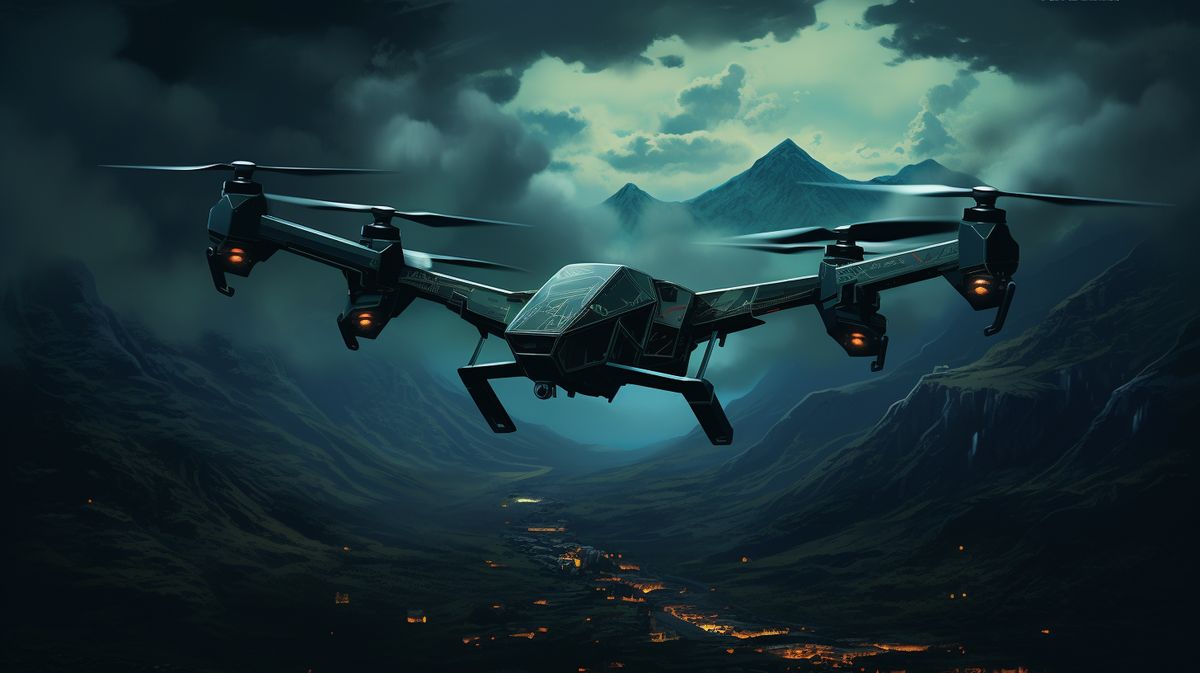AI in the sky: The U.S. Air Force's gamble

- The U.S. Air Force has requested a multibillion-dollar budget to fund up to 2,000 XQ-58A Valkyrie drones, AI-powered unmanned aerial vehicles designed for high-risk battle scenarios and equipped with advanced features like 550 mph speed and 45,000 feet altitude capability.
- The initiative faces serious ethical scrutiny, with human rights organizations and watchdogs warning against "outsourcing killing to machines" and pointing out that such technology could introduce an unpredictable and morally precarious element to warfare.
- United Nations Secretary-General António Guterres has already labeled autonomous machines capable of life-or-death decisions as "politically unacceptable, morally repugnant," and advocates for their prohibition under international law.
Seeking to revolutionize the future of airborne warfare, the U.S. Air Force has formally requested a multibillion-dollar budget allocation. The requested funds are earmarked for the production of up to 2,000 AI-powered unmanned aerial vehicles, known as the XQ-58A Valkyrie drones.
The Valkyrie is more than just a remote-controlled drone; it's built to serve as an automated combat assistant. Equipped with cutting-edge technology, the drones can execute perilous battle maneuvers that would be too risky for human aviators. A report by The New York Times suggests that these AI-driven drones are optimized for scenarios where the odds of human survival are low.
Later this year, a pivotal test will assess the drone's ability to autonomously locate and eliminate a target in the Gulf of Mexico, without human guidance for tactical planning. The XQ-58A Valkyrie is already capturing attention with its extraordinary features, according to Insider. Capable of reaching speeds up to 550 mph and cruising at altitudes of 45,000 feet, it has a projected range of 3,000 nautical miles. This far surpasses its predecessor, the XB-70 Valkyrie, which required a human crew and had a much more limited production run.
Subject to the approval of Congress, the estimated budget for this groundbreaking initiative stands at $5.8 billion over a five-year period. The hefty financial ask comes after a series of experimental test flights where the drone operated as a communication relay between state-of-the-art fighter jets like the F-22 and F-35. Additionally, the Valkyrie has been tested in conjunction with the Air Force's Skyborg initiative, an AI platform tailored to control unmanned aircraft.
As for the cost per drone, The New York Times reports that each unit is projected to cost between $3 million and $25 million. This presents a more cost-effective solution compared to conventional manned fighter jets. Both the U.S. Air Force and the Department of Defense have yet to comment on the development, even though they have been approached for statements.
Despite the financial incentives and strong backing from military stakeholders for the "Next Generation of Air Dominance," the move toward autonomous fighting drones like the XQ-58A Valkyrie is sparking serious ethical conversations. Human rights organizations and ethical watchdogs argue that the push toward AI-guided warfare may set the stage for a morally troubling future, often likened to the dystopian scenarios in science fiction like the "Terminator" series.
Ethical implications
In a recent interview with The New York Times, Mary Wareham, Advocacy Director of the Arms Division at Human Rights Watch, sounded an alarm bell on the ethical consequences of this technological advancement. Wareham: “You’re stepping over a moral line by outsourcing killing to machines — by allowing computer sensors rather than humans to take human life.”
The Future of Life Institute, a nonprofit concerned with existential risks to humanity, has termed such AI-operated combat systems as "slaughterbots." They argue that the decision-making speed of algorithms could not only expedite military conflicts but also introduce a level of unpredictability that could be as dangerous as weapons of mass destruction.
The ethical debate surrounding AI in the military isn't a fresh issue. United Nations Secretary-General António Guterres had already voiced his concerns in 2019, asserting that autonomous machines capable of making life-or-death decisions without human oversight are “machines with the power and discretion to take lives without human involvement are politically unacceptable, morally repugnant and should be prohibited by international law.”
Advertisement